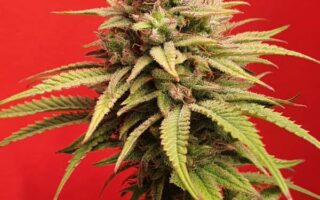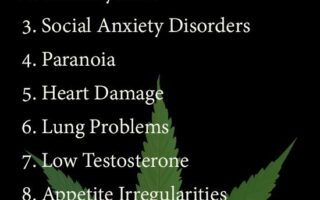Exploring the Spectrum of THC Use: A Journey Through Nature’s Duality
In the tapestry of human experience, few substances evoke as much fascination and debate as tetrahydrocannabinol, or THC. As the primary psychoactive component of cannabis, THC finds itself at the intersection of ancient tradition and modern science. From its historic roles in various cultures to contemporary discussions surrounding legislation and health, THC invites us to explore its manifold impacts on society, wellness, and the ever-evolving landscape of recreational and medicinal usage. In this article, we embark on a nuanced exploration of THC use—its benefits and drawbacks, the science behind its effects, and the growing awareness of responsible consumption. Join us as we unravel this complex and compelling element of our shared narrative, seeking to shed light on the many shades of THC in our lives.
Table of Contents
- Understanding THC: The Science Behind Its Effects and Benefits
- Navigating the Legal Landscape: What You Need to Know About THC Use
- Responsible Consumption: Guidelines for Safe and Enjoyable Experiences
- Exploring Therapeutic Potential: THC in Medicine and Holistic Practices
- Q&A
- To Conclude
Understanding THC: The Science Behind Its Effects and Benefits
Tetrahydrocannabinol, commonly known as THC, is the primary psychoactive compound found in cannabis. When consumed, THC interacts with the body’s endocannabinoid system, particularly bonding with the CB1 receptors in the brain. This interaction is responsible for its characteristic effects, which can range from euphoria and relaxation to increased appetite and altered sensory perception. Individuals may also experience enhanced emotional responses, making everyday activities feel more vivid and engaging. Understanding these mechanisms helps clarify why many users seek THC not only for recreational purposes but also for its potential therapeutic benefits.
Numerous studies have suggested that THC may play a crucial role in managing various medical conditions. Its analgesic properties make it effective for pain relief, while its antiemetic effects can alleviate nausea, particularly in patients undergoing chemotherapy. Potential benefits also include enhanced sleep quality and reduced symptoms of anxiety and depression. To better illustrate these benefits, the following table summarizes some of the notable effects of THC and associated conditions:
| Effect | Potential Conditions |
|---|---|
| Pain Relief | Chronic pain, arthritis |
| Anti-nausea | Chemotherapy-induced nausea |
| Appetite Stimulation | HIV/AIDS, eating disorders |
| Sleep Aid | Insomnia, PTSD |
| Anxiety Reduction | Generalized anxiety disorder |
Navigating the Legal Landscape: What You Need to Know About THC Use
Understanding the legal aspects of THC use is crucial for anyone who wishes to partake in cannabis consumption. Laws surrounding marijuana and its derivatives have evolved dramatically across various jurisdictions, creating a mosaic of regulations that can be challenging to navigate. Here are some essential points to consider:
- State vs. Federal Law: Keep in mind that while some states have legalized THC for recreational or medicinal use, it remains illegal federally.
- Permitted Limits: Many states impose restrictions on the amount of THC one can possess or cultivate. Be familiar with your state’s specific laws.
- Usage and Consumption Methods: Different forms of THC—such as edibles, oils, and flowers—may have varying regulations.
- Age Restrictions: Most states enforce age limits for legal use; typically, you must be at least 21 years old.
When considering THC use, it’s also vital to be aware of local ordinances that may affect where and how you can consume. Below is a simple comparison table highlighting noteworthy legal variations in selected states:
| State | Medical Use | Recreational Use | Personal Possession Limit |
|---|---|---|---|
| California | Yes | Yes | 28.5 grams |
| Texas | Limited | No | 2.5 ounces (medical only) |
| Colorado | Yes | Yes | 1 ounce |
Awareness of such details not only aids in responsible consumption but also mitigates the risk of legal repercussions. Always consult local laws or a legal expert to ensure you stay informed about the constantly changing legal framework surrounding THC use.
Responsible Consumption: Guidelines for Safe and Enjoyable Experiences
When engaging with THC, it’s essential to prioritize both safety and enjoyment. Understanding your own tolerance levels is crucial, as individual reactions to THC can vary dramatically. Start with low doses and gradually increase as you become more familiar with how your body responds. Consider consuming in familiar environments and with trusted friends to enhance the experience, ensuring you feel secure and supported. It’s also advisable to stay hydrated and have some light snacks on hand to help balance the effects.
To further enrich your experience, here are some straightforward guidelines to keep in mind:
- Set Intentions: Know why you’re using THC—whether for relaxation, creativity, or socializing.
- Check Potency: Be aware of the THC concentration in products to avoid overwhelming effects.
- Avoid Mixing Substances: Combining THC with alcohol or other drugs can lead to unpredictable reactions.
- Stay Informed: Research different strains and methods of consumption to find what suits you best.
- Know Your Limits: If you feel uncomfortable or anxious, it’s okay to stop or take a break.
Exploring Therapeutic Potential: THC in Medicine and Holistic Practices
The therapeutic potential of THC (tetrahydrocannabinol), the primary psychoactive component in cannabis, has gained significant attention in both scientific and holistic circles. As an active ingredient in various medicinal formulations, THC is being examined for its efficacy in managing a variety of conditions. Benefits of THC in medicine include:
- Pain relief: THC interacts with the body’s endocannabinoid system, potentially alleviating chronic pain.
- Anxiety reduction: Some studies suggest that THC can help reduce feelings of anxiety in specific doses.
- Appetite stimulation: THC may aid those suffering from conditions like cancer or HIV/AIDS by increasing appetite.
- Nausea alleviation: It has been shown to be effective in reducing nausea, particularly in patients undergoing chemotherapy.
In addition to conventional medicinal applications, holistic practices are increasingly integrating THC to enhance overall well-being. The synergistic effects of THC alongside herbal remedies or essential oils can create a multifaceted approach to health. Common holistic uses include:
| Holistic Practice | Complementary THC Use |
|---|---|
| Aromatherapy | Incorporating THC-infused oils for relaxation. |
| Yoga | Utilizing THC to enhance mindfulness and focus. |
| Massage Therapy | Applying THC-infused balms for pain relief. |
| Meditation | Using THC to deepen states of relaxation. |
Q&A
Q&A: Understanding THC Use
Q1: What is THC and how does it work?
A: THC, or tetrahydrocannabinol, is the primary psychoactive compound found in cannabis. When consumed, it interacts with the endocannabinoid system in the brain, binding to cannabinoid receptors and influencing various physiological processes, such as mood, memory, and pain perception. This interaction is what produces the characteristic “high” associated with cannabis consumption.
Q2: What are the common forms of THC consumption?
A: THC can be consumed in a variety of ways. The most popular methods include smoking or vaping dried cannabis flower, using oils and tinctures, and ingesting edibles like gummies or baked goods. Each method varies in terms of onset time and intensity of effects, offering users multiple choices to suit their preferences.
Q3: Is THC use legal everywhere?
A: No, THC legality varies significantly across the globe. In some regions, it is fully legal for both medical and recreational use, such as in several states in the U.S. and countries like Canada. In other places, it remains strictly prohibited. It’s crucial for users to familiarize themselves with local laws before consuming THC.
Q4: What potential benefits can THC offer?
A: Research suggests that THC may provide several therapeutic benefits. Users have reported relief from chronic pain, reduced nausea (particularly in cancer patients undergoing chemotherapy), and enhanced appetite. Some studies also indicate potential benefits for anxiety and insomnia, although results can vary widely among individuals.
Q5: Are there risks associated with THC use?
A: Yes, while many enjoy the effects of THC, it’s important to be aware of potential risks. These can include impaired short-term memory, decreased motor coordination, or increased heart rate. In some individuals, especially at higher doses, THC may induce anxiety or paranoia. Long-term use can also have implications for mental health and cognitive function.
Q6: How does THC differ from CBD?
A: THC and CBD (cannabidiol) are both compounds found in cannabis, but they have distinct characteristics. THC is psychoactive, producing a high, while CBD is non-psychoactive and is often associated with therapeutic benefits without the euphoric effects. As a result, CBD has garnered popularity in wellness products targeting anxiety, inflammation, and other conditions.
Q7: What should new users consider before trying THC?
A: New users should start low and go slow. This means beginning with a low dose to assess individual tolerance and gradually increasing as needed. It’s also advisable to choose a comfortable and safe environment, especially when trying smoking or edibles for the first time. Being aware of the substance’s legal status and potential effects is essential for a positive experience.
Q8: Can THC lead to addiction?
A: While most people who use THC do not develop an addiction, it is possible. Research indicates that around 9% of users may develop a cannabis use disorder, with this number increasing among those who start using at a younger age or who use it daily. Awareness and moderation are key to reducing the risk of dependency.
Q9: What’s the role of professionals in THC use?
A: Healthcare professionals can provide valuable guidance for those considering THC for medicinal purposes. Engaging with a knowledgeable provider can help users understand potential benefits and risks, monitor their health, and make informed decisions about usage tailored to their specific needs.
Q10: What’s the future of THC research?
A: As cannabis laws evolve, research into THC is expanding rapidly. Future studies are likely to delve deeper into its medicinal properties, dosage guidelines, and long-term effects. As public interest grows and the stigma associated with cannabis decreases, more comprehensive data will inform healthcare practices and policy-making surrounding THC use.
To Conclude
As we draw the curtains on our exploration of THC use, it’s clear that this compound weaves a complex tapestry within both cultural and scientific realms. From its historical roots to the modern conversations surrounding its legality and medicinal benefits, THC remains a multifaceted subject—evoking passionate opinions and ongoing research. Whether viewed through the lens of wellness, recreation, or controversy, understanding THC invites us to engage in a broader dialogue about health, safety, and personal choice.
As society continues to navigate the ever-evolving landscape of cannabis use, it’s crucial to approach the topic with curiosity and discernment. By fostering informed discussions and acknowledging diverse experiences, we can cultivate a more nuanced perspective on THC and its implications for individuals and communities. the journey into the world of THC is not just about the compound itself, but about how it influences our lives, challenges our perceptions, and ultimately, shapes our collective future.



